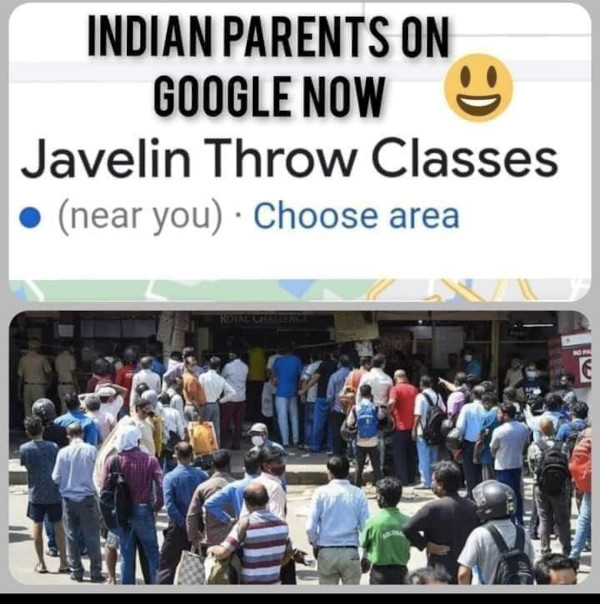[Photo by Karla Hernandez on Unsplash]
Good morning,
In Range: Why Generalists Triumph in a Specialized World, David Epstein offers an interesting example of how outsiders crack the problems that are too difficult for the insiders.
“In 1989, the Exxon Valdez oil tanker famously hit a reef and leaked its payload into the Prince William Sound. It was a monumental environmental and commercial fishing disaster. When oil mixes with water, spill workers refer to the resulting goop as ‘chocolate mousse.’ Throw in low temperature and spill responders are working with material that has the viscosity of peanut butter. It is devilishly difficult to remove.
“Almost twenty years after the Exxon Valdez spill, thirty-two thousand gallons of oil remained stubbornly stuck along Alaska’s coast. One of the most intractable challenges for oil spill remediation was pumping oil out of recovery barges after it was skimmed from the water. In 2007, Scott Pegau, research program manager at the Alaska-based Oil Spill Recovery Institute, figured he might as well try InnoCentive. He offered a $20,000 reward for a solution to getting cold chocolate mousse out of recovery barges.
“Ideas rolled in. Most were too expensive to be practical. And then there was the solution from John Davis, so cheap and simple it made Pegau chuckle. ‘Everyone kind of looked at it,’ Pegau told me, ‘and just said, ‘Yep, this should work.’’
“Davis, an Illinois-based chemist, had been pondering the oil spill challenge while waiting for flights during work travel. Naturally, he started with chemistry solutions, but made an about-face. ‘You’re already dealing with a chemical pollutant more or less,’ Davis told me, ‘so you want to do as little chemistry as possible’ in order to avoid adding more pollutants. He abandoned his specialty and turned to a distant analogy. ‘I visualized the problem as drinking a slushy,’ he said. ‘You end up having to whip around the straw to stir it up. How could you make it so you don’t have to work so hard to get that slushy out?’”
John Davis looked at the construction industry, and borrowed an idea from concrete vibrators that were used to keep concrete from setting in, and applied it in the oil industry. It worked. But, why did such a simple solution elude the experts within the industry.
Epstein quotes Pegau: “I think it happens more often than we’d love to admit, because we tend to view things with all the information we’ve gathered in our industry, and sometimes that puts us down a path that goes into a wall. It’s hard to back up and find another path.”
The punchline of the section comes at the end. “When I asked Davis if he was prone to framing problems with distant analogies from random experiences outside his field, he had to ponder it for a moment. Does he do that in his daily chemistry problems, I asked? ‘You know, I don’t, not really,’ he said. ‘It’s these other puzzles or problems where you have to think outside the box.’”
In this issue:
- The battle for techies
- How Nicobar islanders escaped the deadly second wave
- What Indian parents want
The battle for techies
The battle to get engineers into the firm just got fiercer, report Swati Moorthy and Chandra Srikanth on Moneycontrol.com. They begin their narrative by describing a candidate with eight years of experience in DevOps and earning Rs 18 lakh per annum who could sit back and witness a bidding war between potential employers. A multinational was willing to pay Rs 23 lakh to get him on their side. “An American company entered the fray, started a bidding war, and countered the offer with a Rs 1.1 crore pay package. It, however, did not end there. The multinational now bettered it with a Rs 1.15 crore offer.”
Such battles aren’t a one off, they write. “It is bad enough that even Bhavish Aggarwal, founder of Ola, took a dig at this in a tweet saying, ‘Engineering hiring situation in Bengaluru - thinking of offshoring some work to a lower cost center in SF, Bay Area!’”
So whatever is going on? “The Covid-19 pandemic-led internet and technology boom has led to an accelerated shift to digital, with software companies, startups, and multinationals now vying for technology talent to fulfill the booming demand for technology and software services. According to industry executives, with multiple offers on hand, financial incentives have become the biggest inducement for people to decide on offers, and companies have no option as the demand and supply gap widens.”
Dig deeper
- In the wild world of tech hiring in India, the engineer is now king (Moneycontrol.com)
How Nicobar islanders escaped the deadly second wave
An essay in Scientific American by Ajay Saini, an assistant professor at IIT Delhi who works with remote Indigenous communities, underlines the importance of local communities in solving problems.
He writes, “Over the past five centuries, alien germs and epidemics spread by European colonizers have exterminated scores of Indigenous societies around the world. The tragic fate of the neighbouring Great Andamanese, whom imported epidemics had all but obliterated in the 19th century, reminded the Nicobarese leaders about their own unique vulnerabilities. Being a historically isolated community, the Nicobarese are highly susceptible to alien diseases, a vulnerability exacerbated by the inadequate public health system. Thus, maintenance of isolation—a natural protection that the Nicobarese enjoyed against the contagion—was crucial to their survival
“The tribal councils began to lobby the local administration, pleading for restrictions on the movement of people to the Nicobars. Even so, the administration banned travel to the islands only after the coronavirus had infected people in northern and southern Nicobar Islands, which have significant populations of mainlanders. Fortunately, everyone survived and, with the infected people and their families diligently following Covid protocols, the disease did not spread. The tribal councils ensured that the Nicobarese watched over one another and immediately reported any symptoms of Covid to their leaders.
“In this manner, the Nicobarese people managed to contain the spread of the first wave of the pandemic and seem to have escaped the second. Now that the Indian government has started a Covid-19 vaccination drive in the archipelago, the tribal leaders are again playing a crucial role in dispelling vaccine-related myths. Majid has led by example, encouraging her community to fearlessly get the injection.”
Dig deeper
What Indian parents want

(Via WhatsApp)
Found anything interesting and noteworthy? Send it to us and we will share it through this newsletter.
And if you missed previous editions of this newsletter, they’re all archived here.
Bookmark Founding Fuel’s special section on Thriving in Volatile Times. All our stories on how individuals and businesses are responding to the pandemic until now are posted there.
Warm regards,
Team Founding Fuel

